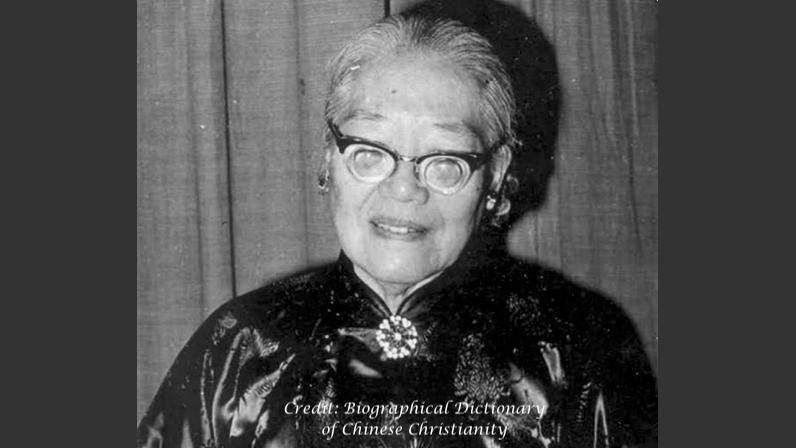

Zeng Baosun was one of the first Chinese Christians to come from a prominent family. Her great-grandfather was the famous Qing statesman, Zeng Guofan, and her father was the youngest man ever inducted into the prestigious Hanlin Academy. Zeng’s commitment to Christian education for women in Hunan’s anti-foreign environment makes her a notable figure in the history of the Chinese Church.
After the two disasters of the 1894-95 Sino-Japanese War and the 1900 Boxer Uprising, many prominent Chinese turned to the Church for guidance and hope. In 1908, Zeng Baosun was enrolled by her parents in a Christian girls’ school in Hangzhou. Her involvement in a student protest ironically led to a close relationship with two teachers at the school, Miss Barnes and Miss Stuart, and she began to meet with them for Bible study and prayer. She was particularly moved upon learning that Miss Stuart had been lamed and orphaned by the Boxers, and further that though Miss Stuart had hated Chinese for a time, her faith in Christ had not only given her the power to forgive, but to return to China as a missionary. In 1910, Baosun attended several revival meetings conducted by Rev. Ding Limei (丁立美牧师) and asked her family for permission to become a Christian. At her father’s request, Baosun first read Darwin’s On the Origin of Species; she nonetheless committed her life to Christ and was baptized in 1911. Baosun led an opium-addicted uncle to Christ that year, and after he broke the habit, he started one of the first self-supporting indigenous churches in Hunan.
In 1912, Louise Barnes took Baosun to England for study. When Baosun passed the university entrance examinations the next year, a crisis arose. Miss Barnes, then 60, was required to serve one more five-year term in China to qualify for her pension. However, she had promised not to leave Baosun alone in England, and Baosun affirmed that she could not stay if Miss Barnes returned to China. They committed to pray over the matter one night, and in the morning wept together as Barnes said God had led her to resign from the mission and forfeit her pension.
While in England, Baosun decided that she should open a Christian school run entirely by Chinese in Hunan. In 1916, Baosun became the first Chinese woman to earn a Bachelor of Science degree from the University of London, and after a year of graduate study at Oxford and Cambridge, she returned to China to found the Yifang Girls’ Middle School in Changsha. The name Yifang means “Culture and Prosperity” and was taken from the name of a room in the Zeng ancestral home. The school was unique in having a Student-Faculty Association that governed the school –– each person having one vote.
In 1928, Zeng visited Jerusalem to attend the World Christian Council and worshipped in the Garden of Gethsemane on Good Friday. She called it “the most moving religious experience of my life.” In 1936, she joined a YMCA team that lectured on Christianity in 12 of China’s largest cities. She wrote of “the exhilaration of bringing the Christian message to thousands of young people.”
Yifang School closed in 1938 after the Japanese invasion and remained closed until 1946. Zeng lived in the ancestral home in Xiangxiang, Hunan for nearly five of those years, and wrote of this time, “My hope was in God’s mercy and the power of prayer.” Zeng left Hunan in 1949 and eventually settled in Taiwan. She once wrote, “The true government of a nation can only be based on the principles of Christ’s love.” She went to be with the Lord in 1978.